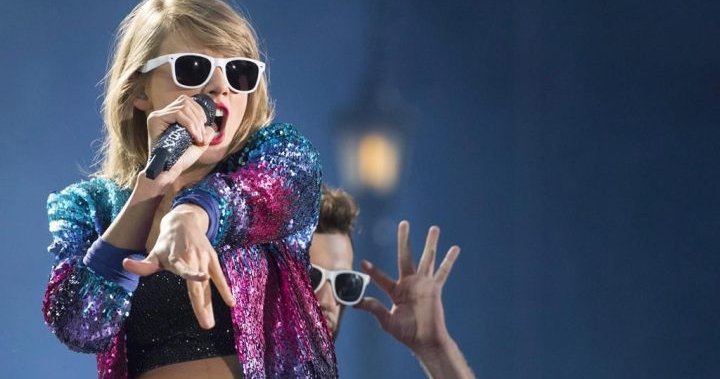Companies marketing themselves in connection with Taylor Swift’s future swing through Toronto might feel an afterglow that outlives the pop star’s handful of shows in the country — but such brands also face several risks in tying themselves to the hotly-anticipated tour.
That’s the message marketing experts had as tickets to Swift’s six nights in Toronto next November — backed by Rogers Communications Inc. and Royal Bank of Canada — went on sale Wednesday.
Telecommunications giant Rogers has been marketing itself as the presenter of Swift’s Toronto stops at the Rogers Centre stadium, while RBC is listed as an official partner and will offer an exclusive allocation of tickets to its Avion members next week.
“Whether someone would switch bank or card allegiance due to access to a Taylor Swift concert is debatable, but (it) is `eyes on the prize’ and certainly there will be a lot of eyes on this event as we get to November 2024,” said Richard Powers, national academic director of the Rotman School of Management at the University of Toronto, in an email.
The Eras tour, which kicked off in the U.S. in March and will span at least two years, has become one of the most lucrative shows in history.
Online research company QuestionPro said in June, ahead of Swift’s Toronto announcement, that fans had spent an average US$1,300 per show. About 70 per cent of the 596 people it surveyed said the money was worth it because the experience was so rewarding, while 91 per cent said they’d go again.
Despite ticket-holders paying more than they budgeted, QuestionPro said the Eras Tour achieved a Net Promoter Score — a metric measuring how likely someone is to recommend a brand or product to a friend — of 68, putting it on par with retailer Costco and tied with tech goliath Apple and the Ritz-Carlton Hotel chain.
QuestionPro estimated that if the current spending pace continues through the end of the tour, Swift will have generated an estimated US$5 billion in economic impact.
“These numbers are pretty incredible,” said Dan Fleetwood, QuestionPro’s president of research and insights, in a press release.
“If Taylor Swift were an economy, she’d be bigger than 50 countries; if she was a corporation, her Net Promoter Score would make her the fourth most admired brand, and her loyalty numbers mimic those of subjects to a royal crown.”
Such findings likely contributed to a cost-benefit analysis Powers suspects companies completed before getting on board with the tour and devising Swift marketing plans.
Days before announcing its ticket allocation, RBC opened up the Avion program to Canadians regardless of what company they bank with.
While the bank has long offered customers an exclusive inventory of tickets to Live Nation Canada shows, the Avion tie-in is more unique.
“It goes after a different demographic,” said Powers, meaning parents purchasing tickets for their kids.
“The Avion card targets a higher income demographic that they compete for every day with the other big banks.”
RBC did not immediately respond to a request for comment.
For Rogers, the connection may be as much about driving customers as it as it about goodwill. The company is still working to repair its public perception after a daylong outage last summer that garnered international headlines.
Rogers did not immediately respond to a request for comment.
However, Powers said, “Coming off their recent connection problems, this is a feel-good story for them.”
“Considering the target market — younger fans looking for better priced mobile packages — expect to see other parts to this sponsorship, specifically targeted to that demographic,” he added.
But Joanne McNeish said that younger demographic will make it harder to capitalize.
“A common mistake that brands make today is that if you put your name in front of young consumers who can’t currently purchase your product or service they will remember you and purchase at another point in time,” said the associate professor of marketing at Toronto Metropolitan University in an email.
A bad experience could also backfire on the brands.
Fans who have a hard time getting tickets, as has become customary for the tour, could also mean customers sour on brands, said Powers.
Her show slowed Ticketmaster’s systems significantly in November, leading to U.S. Senate hearings and politicians promising to take action.
While Swift’s shows have soldiered on, the ticketing process now relies heavily on verified pre-sales where fans sign up in advance for a chance to buy ducats. However, demand often outweighs supply, leaving many unhappy on the wait list or turning to scalpers.
“This opportunity comes with risks,” Powers said.
“Even Taylor Swift can get sick, cancel dates. The big sponsors also bear some of the risk of an unforeseen issue causing a cancellation or postponement of concert dates.”
© 2023 The Canadian Press




